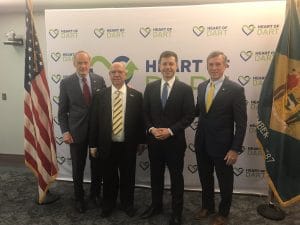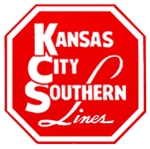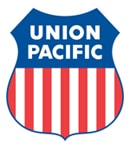SMART Transportation Division Bus Department Vice President Calvin Studivant and New Jersey State Legislative Director Ron Sabol spent a significant time brainstorming ways to protect members in Sabol’s state last year.
The ongoing coronavirus pandemic had added even more potential risk to our members working on New Jersey Transit (NJT) and other carriers. Beyond their daily duties of keeping things moving, the need for workers to enforce COVID safety measures increased the potential for conflict and violent incidents with dangerous outcomes for workers, riders and even the public.
Two assaults on NJT workers drew headlines through the autumn. A union tracking violence against NJT workers reported more than 130 instances of workers being attacked. Something needed to be done.
In response, Studivant and Sabol, in conjunction with SMART-TD legislative and legal leadership, developed and presented what became the Motorbus and Passenger Rail Service Employee Violence Prevention Act.
On Jan. 10, that legislation was signed into law by Gov. Phil Murphy.
“I’m very proud of what this law accomplishes in protecting transportation workers in our state,” Sabol said. “It took the help of many people on both our side, including National Legislative Director Greg Hynes and TD Designated Legal Counsel Safety Coordinator Larry Mann, the persistence of other labor organizations, and a receptive, bipartisan group of legislators to get this done.”
Assemblyman Daniel R. Benson (D-Dist. 14) and state Sen. Patrick J. Diegnan Jr. (D-Dist. 18) were the driving forces behind the versions of the Motorbus and Passenger Rail Service Employee Violence Prevention Act that ran concurrently in rapid fashion through both chambers of the New Jersey Legislature. On the Republican side, State Sen. Robert R. Singer (R-Dist. 30) also championed the bill that gained massive support from both parties in the Senate.
The Senate version, S-4071, passed unanimously Dec. 20 on a 39-0 vote. The Assembly version, A-6013, passed unanimously with a 76-0 vote the same day.
“We cannot thank Assemblyman Benson enough for his diligence and his amazing effort in putting in the time to make this legislation succeed,” Sabol said after the bill’s signing. “He spent hours engaging fellow legislators with in-depth discussions as he proposed and helped to advance the legislation. The same goes again with state Sens. Diegnan and Singer, who were instrumental in initiating and retaining the overwhelming bipartisan support the law gained, and, of course, Gov. Murphy.”
The Motorbus and Passenger Rail Service Employee Violence Prevention Act upgrades the penalty for all assaults on a motorbus or autobus operator, the operator’s supervisor and a rail passenger employee. It also empowers NJT, motorbus companies and all rail passenger service providers to ban riders from their transportation services for up to one year if the person commits an assault on a motorbus operator, the operator’s supervisor or a rail passenger employee.
If a deadly weapon was used during the assault, the rider may be banned for life.
“Transportation workers are far too often subjected to vicious attacks by irate passengers for simply doing their jobs,” said Benson, who serves as chairperson of the Assembly Transportation and Independent Authorities Committee. “Our bus and rail employees must be protected as they fulfill their critical duties on behalf of the hundreds of thousands of commuters in our state.”
“This bill, while long overdue, is right on time,” Vice President Studivant said. “The collaborative efforts to secure this piece of legislation is a testament to the men and women who face adverse conditions on a daily basis for simply doing their jobs of moving the people of N.J.”
“Congratulations to Vice President Studivant, SLD Sabol and the New Jersey State Legislative Board for their outstanding work, and thanks to Larry Mann for his guidance in this victory,” National Legislative Director Greg Hynes said. “This legislation could be a great blueprint for other states to follow suit.”
Of note, Gov. Murphy also signed S.771, a second piece of legislation expanding workers’ compensation coverage to include injuries that occurs in employer parking lots. Both SMART-TD and the New Jersey Council of Safety and Health (COSH) supported the bill.








